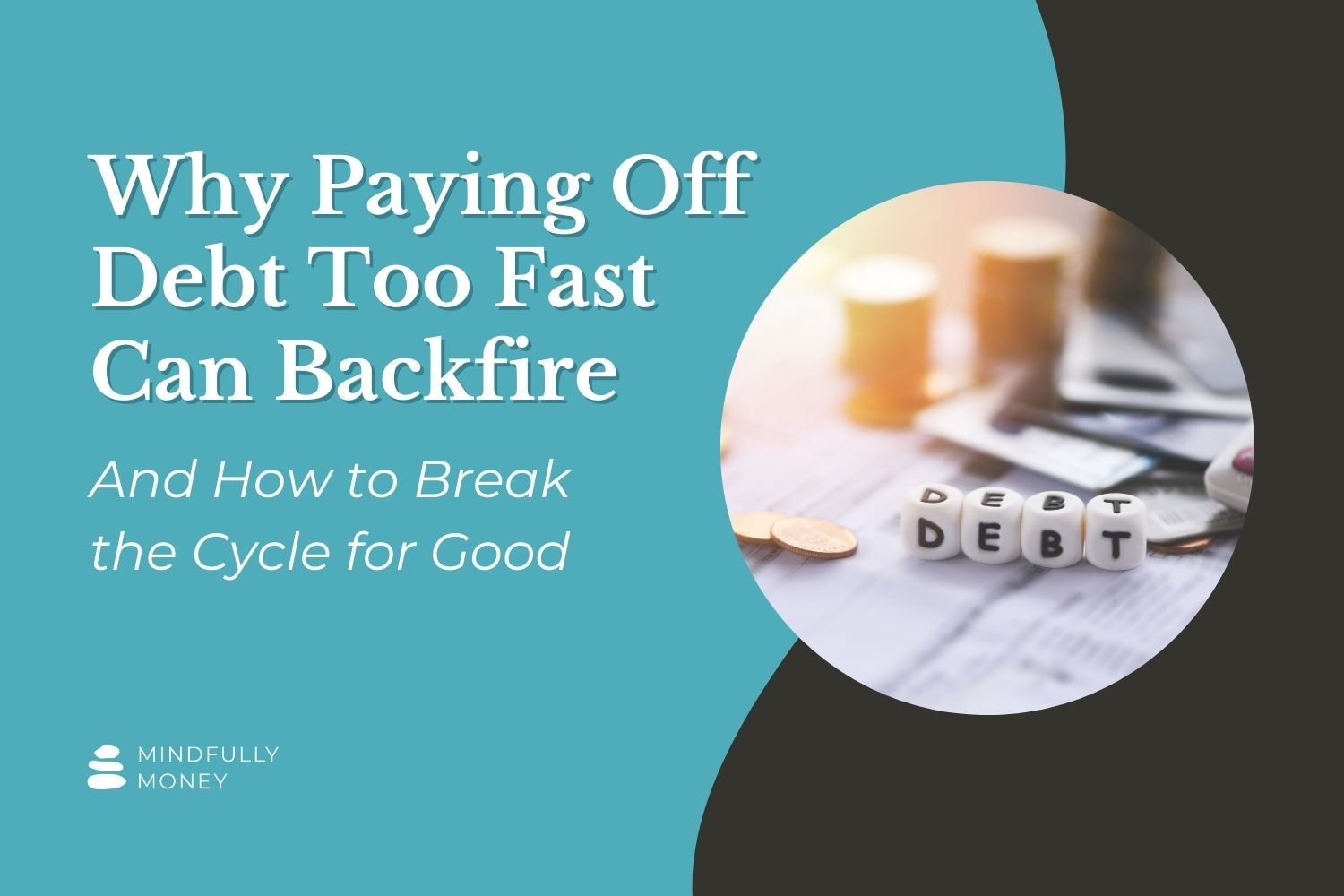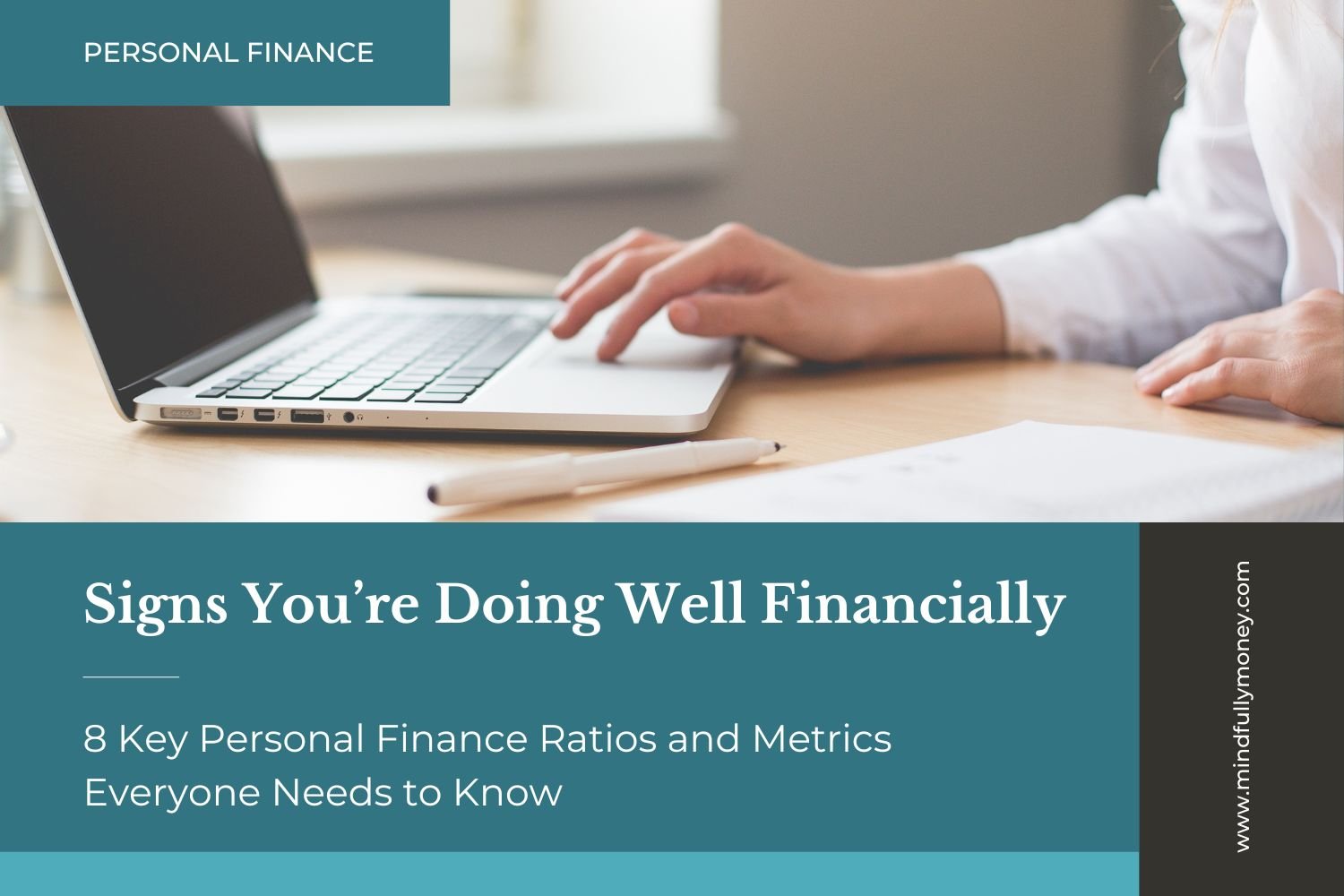Resources to Help You Manage Your Money

Why Paying Off Debt Too Fast Can Backfire (And How to Break the Cycle for Good)
If you’ve ever tried to pay off debt fast only to find yourself right back in it, you’re not alone. The truth is, the common advice to throw every extra dollar at debt might actually be keeping you stuck in the cycle. In this article, we’ll explore why paying off debt too quickly can backfire and how to break free by finding a balance between saving, spending, and debt payoff. Discover a smarter, more sustainable approach to managing your money that helps you avoid future debt and gives you peace of mind.

Signs You’re Doing Well Financially: 8 Key Personal Finance Ratios and Metrics You Need to Know
Discover the key signs you're doing well financially by understanding essential personal finance ratios. This comprehensive guide breaks down net worth, net cash flow, fixed cost ratio, emergency fund ratio, savings rate, housing ratio, debt to income ratio, and credit score. Learn how to use these metrics to track your financial health and make informed decisions for a secure future.

How to Deal with Unexpected Expenses
Unexpected expenses can derail your finances. Learn how to prepare for unexpected expenses with these practical budgeting tips. Discover examples of surprise costs, how to create savings buckets, and why an emergency fund isn't always enough. These tips will help you confidently handle any unexpected expenses life throws your way.

Personal Finance New Year’s Resolutions
Take control of your money in the new year with these personal finance New Year’s resolutions. Use these ideas to save more for retirement and other financial goals, pay off debt, secure your future, and more!

Get Better with Money: 9 Tips for Personal Finance Success
Want to take control of your finances but not sure where to start? Start with these nine tips for personal finance success so you can stop feeling overwhelmed and start building the life you want.

Job Loss, Medical Costs and Home Repairs: How to Be Prepared for When Something Goes Wrong
Do you worry about what you will do financially if something happens? This is a very real concern for many Americans. Having an emergency fund is a great way to provide emotional comfort and a sense of security. Follow these money saving tips to get started.

How Caring for Aging Parents Fits Into Your Financial Priorities
Many Gen Xers and Millennials are worried that they will have to support their aging parents financially, while at the same time paying off student loans, saving for their kids to go to college, and putting aside money for retirement. So how does supporting aging parents financially fit into your financial plan? Follow these money tips to get your own finances in order so you can best help those you love.

What to Do With Your Coronavirus Stimulus Check
The government is sending out a round of stimulus checks to help people survive and keep the economy going. But what to do with it? Spend it? Save it? Check out these ideas for how to best use this money.

Why You Need an Emergency Fund
An emergency fund is what keeps you from going into debt or being unable to pay your bills when bad things happen. Learn why everyone needs and emergency fund, what it is, when to use it, and how much you need in your emergency fund.
